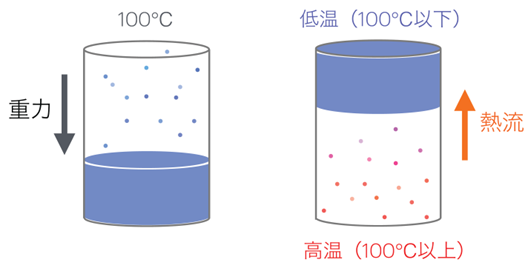2024-09-12 コロンビア大学
<関連情報>
- https://www.publichealth.columbia.edu/news/impact-climate-change-agriculture-suggests-even-greater-challenges-environment-global-food-supply-public-health
- https://www.science.org/doi/10.1126/science.adn3747
気候変動が農業の環境影響を悪化させる Climate change exacerbates the environmental impacts of agriculture
Yi Yang, David Tilman, Zhenong Jin, Pete Smith, […], and David B. Lobell
Science Published:6 Sep 2024
DOI:https://doi.org/10.1126/science.adn3747

The major environmental impacts of agricultural systems and potentially exacerbating effects of climate change (dark red circle in the center).
IMAGES: Vectorstock.com
Editor’s summary
Intensive agriculture creates multiple environmental challenges, including runoff of excess nutrients, use of chemical pesticides, biodiversity loss, and greenhouse gas emissions. Curbing these negative effects of agriculture while feeding a growing global population is already a massive challenge and one that will likely be exacerbated by climate change. Yang et al. reviewed the research on interactions between climate change and agriculture’s environmental impacts and found that most of this work suggests even greater challenges to come. —Bianca Lopez
Structured Abstract
BACKGROUND
Modern agriculture has large global environmental impacts, from greenhouse gas (GHG) emissions to water and air pollution to biodiversity loss. It is widely expected that agriculture’s environmental impacts will escalate because a growing and richer global population will likely demand more agricultural products, including foods, feeds, fibers, and biofuels. Climate change, though less studied in this regard, is a second potential amplifier of agricultural environmental impacts. As climate change intensifies, it not only poses great risks to agricultural productivity, but its deviation from the relatively stable state under which modern agriculture evolved and has long operated also has profound implications for how agriculture interacts with the environment, and vice versa. In this Review, we present a synthesis of how climate change could amplify the environmental impacts of agriculture, from increases in GHG emissions, water use and scarcity, soil erosion, nitrogen and phosphorus pollution, pest outbreaks and pesticide use and pollution, and biodiversity loss. We discuss solutions to the challenges raised by how climate change could affect agricultural sustainability.
ADVANCES
Two major findings emerge from our synthesis. First, climate change will likely exacerbate the already large environmental impacts of agricultural production. It would do so by (i) directly and negatively affecting agricultural productivity; (ii) reducing the efficacy of agrochemicals and increasing their loss to the environment; and (iii) increasing crop pests and soil erosion. Yield reductions and loss of fertile soils would lead to increased land clearing and subsequent species extinctions and GHG emissions, and/or to agrochemical intensification to retain or increase yields. Greater agrochemical inputs mean greater chemical pollution of the environment and greater GHG emissions. Decreased agrochemical efficacy could also lead to compensatory increases in agrochemical use. These climatic impacts can be independent of, hence additive to or multiplicative of, one another, making climate change a potentially important amplifier of agriculture’s environmental footprints. Second, agriculture already accounts for almost a quarter of global GHG emissions, and agriculture’s response to climate change could create a powerful positive GHG feedback loop through multiple pathways. Climate change could intensify agricultural GHG emissions directly—for example, through increasing CH4 emissions from rice paddies, N2O emissions from soil, and CO2 emissions from land clearing and soil tillage. It could also induce more GHG emissions indirectly—for example, if more agrochemicals are needed to compensate for their reduced efficacy; if drier conditions require more energy- and carbon-intensive irrigation; or if greater losses of nutrients from agricultural fields stimulate more biogenic GHG emissions in aquatic systems. These climate-agriculture feedback effects warrant increased attention.
OUTLOOK
Agricultural reliability and sustainability are of key long-term importance for human and planetary health. The challenges raised by climate change require accelerated adoption of practices and technologies that improve agriculture’s environmental sustainability and climate resilience, especially those that can simultaneously deliver multiple benefits, such as diversification and integrated soil fertility management. However, socioeconomic barriers impede adoption of sustainable practices and technologies. Improved context-specific understanding of these barriers is urgently needed, as are innovative policies to overcome them. Greater investments in the discovery, adaptation, and cost reduction of emerging agricultural technologies could help make agriculture more reliable, sustainable, and climate resilient, as could the adoption of novel foods and healthier diets that would require far less land, water, and chemicals per capita than at present. Our synthesis also identifies many unanswered questions. Although the direction of climate impacts is often clear, the relevant magnitudes are not. Quantitative assessments from local to global scales will be needed, especially for the climate-agriculture feedback loop. Other feedback loops, such as the climate-agriculture-biodiversity loop, are also complicated and require mechanistic and quantitative analyses.
Abstract
Agriculture’s global environmental impacts are widely expected to continue expanding, driven by population and economic growth and dietary changes. This Review highlights climate change as an additional amplifier of agriculture’s environmental impacts, by reducing agricultural productivity, reducing the efficacy of agrochemicals, increasing soil erosion, accelerating the growth and expanding the range of crop diseases and pests, and increasing land clearing. We identify multiple pathways through which climate change intensifies agricultural greenhouse gas emissions, creating a potentially powerful climate change–reinforcing feedback loop. The challenges raised by climate change underscore the urgent need to transition to sustainable, climate-resilient agricultural systems. This requires investments that both accelerate adoption of proven solutions that provide multiple benefits, and that discover and scale new beneficial processes and food products.



